15 Effective Home Remedies For Itchy Scalp Relief
Remedies that work instantly and help relieve itching before it worsens.

Image: Shutterstock
Just imagine yourself with an itchy scalp, scratching your head all day. Is it not irritating and embarrassing? How to stop an itchy scalp? Fret not, there are plenty of home remedies for itchy scalp treatment. They help improve the health of your scalp, and consequently, your hair. In this article, we will discuss 15 easy and effective ways to reduce the itching of your scalp naturally at home. Keep scrolling to find them out.

In This Article
Home Remedies For Itchy Scalp Relief
Natural remedies make for gentler alternatives to commercial products, helping soothe an itchy scalp without exposing your skin to harsh chemicals. Many commercial treatments contain artificial ingredients that may lead to irritation, while natural options focus on nourishing the scalp and addressing the root causes of discomfort. Opting for these remedies can provide long-term relief and promote scalp health in a safer, more balanced way. Try incorporating these home remedies into your routine for a healthier, itch-free scalp.
1. Apple Cider Vinegar
How To Use?
- Dilute ¼ cup of ACV in 1 cup of water.
- Apply this mixture to the scalp.
- Leave it on for 10 minutes and rinse.
- You can do this twice a week for the best results.
Why Does This Work?
Anecdotal evidence suggests this mixture relieves an itchy scalp and inflammation. ACV has antifungal activity (1). It can help reduce scalp buildup and dandruff that may cause an itchy scalp. ACV has been found to exhibit some antifungal activity (2). This is an easy and effective itchy scalp home remedy you can try.
 Quick Tip
Quick Tip2. Organic Coconut Oil
How To Use?
- Warm the coconut oil and gently massage it on your scalp.
- You can leave it on for 20-30 minutes or overnight.
- Try this once a week before you shampoo.
Coconut oil is a good moisturizer and is thought to soothe an itchy scalp. Using coconut oil for dry scalp is a common practice. It helps to soothe itching and other scalp issues because of its antibacterial and emollient properties (3). It is an effective remedy to treat lice infestation as well (4).
3. Tea Tree Oil
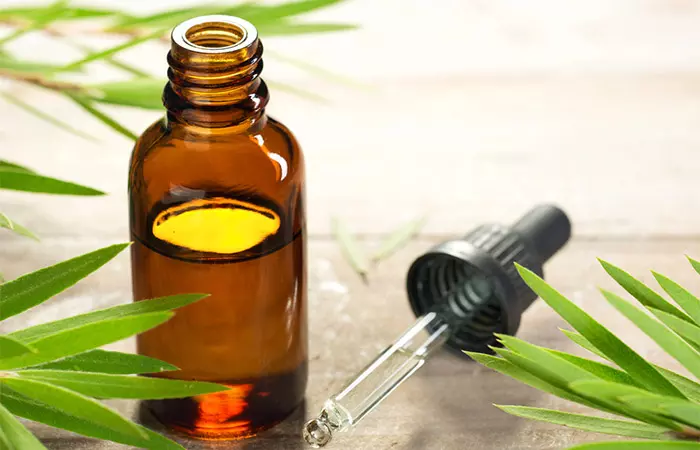
How To Use?
- Apply 5-10 drops of the oil directly to the scalp.
- Massage it in for a few minutes. Let it work on your scalp overnight.
- Rinse your hair in the morning.
- Repeat this twice or thrice a week.
Why Does This Work?
Tea tree oil can kill lice and may soothe an itchy scalp (5). It also moisturizes and nourishes the scalp and eliminates dryness. It contains terpenes that have antibacterial and anti-fungal properties. These may help treat scalp infections (6).
 Trivia
Trivia4. Baking Soda
How To Use?
- Make a paste with baking soda (2-3 tablespoons) and water.
- Apply this paste to the scalp and leave it on for 10 to 15 minutes. Rinse.
- Repeat once every two weeks.
Why Does This Work?Baking soda has antibacterial and anti-fungal properties
(7), (8). It kills the harmful microbes on the scalp that cause infection, itchiness, and hair fall.
5. Aloe Vera
How To Use?
- Remove the gel from the aloe vera leaf and apply it directly to the scalp. You can use store-bought gel if you do not have access to the aloe vera plant.
- Leave it on for 15 to 20 minutes. Rinse with lukewarm water to ensure the gel is washed off easily.
- Do this once or twice a week
Why Does This Work?
Aloe vera gel is a natural moisturizer that soothes an itchy scalp. Its antimicrobial and soothing properties also help treat dandruff and an itchy scalp (9).
6. Lemon Juice
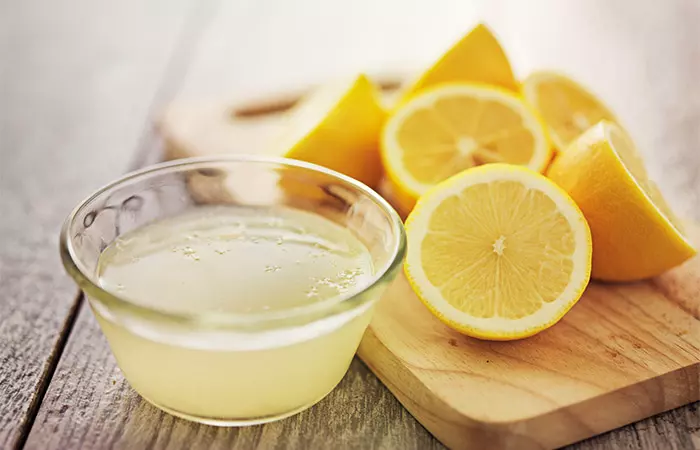
How To Use?
- Dilute 2-3 tablespoons of lemon juice in ½ a cup of water.
- Apply this mixture all over your scalp with a cotton ball.
- Leave it on for 5 to 10 minutes and then rinse with water.
- You can try this once a week. Keep in mind that regular use of lemon juice can lighten or bleach hair.
Why Does This Work?Lemon juice is a natural antimicrobial thanks to its acidity and phytochemicalsi Bioactive compounds found in fruits and veggies that act against bacteria, viruses, and fungi. .
These phytochemicals could have an anti-inflammatory effect on the scalp (10).
7. Peppermint Oil
How To Use?
- Dilute peppermint oil with coconut or jojoba oil and massage onto your scalp.
- Wash after 30-40 minutes.
- You can try this once or twice a week.
Why Does This Work?
Peppermint oil has potent antibacterial properties (11). It is traditionally used for its cooling effect to soothe an itchy scalp.
8. Witch Hazel
How To Use?
- Mix 1 part witch hazel with 2 parts water and apply it to your scalp with your fingers.
- Massage it in for a minute or two. Leave it on for 10 minutes and rinse.
- Apply this once every three to four days.
Why Does This Work?Witch hazel is an astringenti A substance or chemical agent that helps shrink tissues and dry up skin secretions to tighten pores and cleanse the skin. and an antibacterial. It reduces scalp inflammation and also may treat infections. A study on 1,373 patients found that a witch hazel-based shampoo and tonic helped soothe sensitive scalps and was well tolerated. Many patients reported reduced irritation, especially those using minoxidil for hair loss. The product was effective for scalp conditions like redness and irritation (12).
It reduces scalp inflammation and also may treat infections (12).
9. Olive Oil
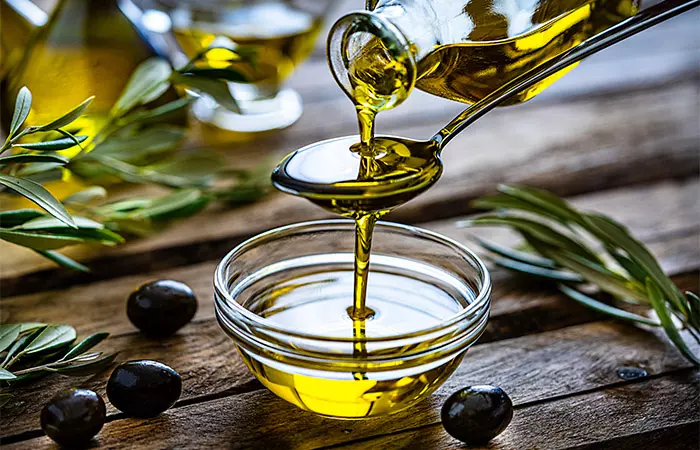
How To Use?
- Warm the olive oil and massage it onto the scalp and hair.
- Leave it on overnight. Rinse your hair as usual in the morning.
- Do this twice a week for a healthy scalp and hair.
Why Does This Work?
Olive oil contains two key compounds oleocanthal and oleuropein that possess anti-inflammatory and skin-protectant properties (13) (14). These compounds may heal scalp inflammation and relieve itchiness.
10. Argan Oil
How To Use?
- Apply argan oil to the scalp and gently massage for a couple of minutes.
- Leave it on overnight. You can rinse your hair in the morning.
- Use argan oil at least once a week.
Why Does This Work?
The nourishing and moisturizing properties of argan oil have made it a favorite among hair care experts. It is also used in psoriasis treatment (15).
11.Onion Juice
How To Use?
- Peel and grate one small onion. Squeeze out the juice and apply to the scalp thoroughly with a cotton ball.
- Leave it on for 20 to 30 minutes. Rinse as usual with shampoo.
- Repeat once every week.
Why Does This Work?
The antimicrobial properties of onions may keep the scalp free of infection (16). Onion’s antioxidants may reduce any scalp inflammation and keep it healthy (17).
Note: Onion juice might cause an allergic reaction in some people when applied directly. Hence, do a patch test before using it on your scalp.
12. Eucalyptus, Lemongrass, and Lavender Oils
How To Use?
- Mix a tablespoon each of eucalyptus, lemongrass, lavender, and coconut oils and dab this mixture on the affected areas.
- Wait for an hour before washing your hair.
- Apply this once or twice a week.
Why Does This Work?
The combination of oils relaxes and soothes your scalp and hair follicles. Lavender oil can kill lice. A study found that lavender oil can help kill lice eggs, showing 44.4% efficacy in stopping them from hatching. Eucalyptus oil, however, was much less effective, with only 3.3% efficacy (18). However, Eucalyptus oil may act against many fungi and fungal infections, including dandruff, which is one leading cause of an itchy scalp (19). Lemongrass has anti-dandruff properties (20).
13. Neem Oil
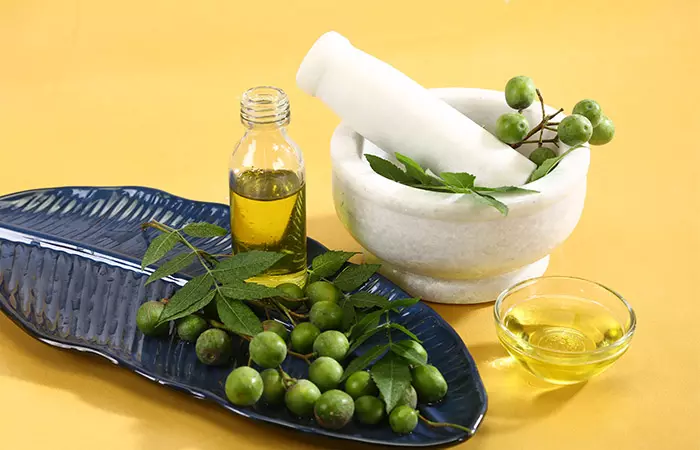
How To Use?
- Add 6-8 drops of neem oil to 2 tablespoons of coconut oil and mix well.
- Apply the mixture to the scalp and leave it on for 15 minutes.
- Rinse hair with a mild shampoo.
- You can repeat this twice or thrice a week for quick relief from an itchy scalp.
Why Does This Work?
The antimicrobial properties of neem and its extracts have been utilized for centuries. Neem oil could work by clearing the infection that causes itchiness (21).
14. Jojoba Oil
How To Use?
- Massage the oil into the scalp and hair.
- Leave it on overnight. Rinse with a mild shampoo in the morning.
- Apply jojoba oil twice a week.
Why Does This Work?
Traditionally jojoba oil has been used for its moisturizing properties to relieve dry, itchy skin. As an itchy scalp remedy, it is believed to hydrate the scalp, thus alleviating the itchiness. Its unique composition as a liquid wax allows it to penetrate hair follicles and dissolve clogged sebum deposits (22). This might help cleanse the scalp, remove buildup, and maintain a balanced moisture level, which may reduce dryness, flakiness, and irritation.
15. Castor Oil
How To Use?
- Gather 2 tablespoons of castor oil, a plastic shower cap, and a comb.
- Part your hair and apply castor oil directly to your scalp using the comb. Spread it evenly.
- Tie your hair in a bun and cover your head with a plastic shower cap.
- Leave the castor oil on your scalp for at least one hour or overnight if possible.
- Wash your hair with a mild shampoo.
- You can repeat this process once a week.
Why Does This Work?
Castor oil possesses antifungal and antibacterial characteristics, which make it effective in shielding the scalp against infections and alleviating itching (23). Prioritizing prevention is advisable, so rather than waiting to develop a scalp infection, incorporate castor oil into your routine to proactively maintain a healthy scalp and hair.
Aside from these home remedies for itchy scalp, you can also use banana, avocado, and egg-based DIY masks. Dr. Michael May, MD, says, “Using a banana mask can help with the irritation and dryness of the scalp. Bananas have antimicrobial properties that can help relieve dandruff symptoms. There are various ways you can do a banana mask. You can make a mask with bananas with egg, honey, avocado, and yogurt. Leave it on for 15 to 20 minutes, then wash off completely with lukewarm water.”
Dr. Nina Ross, a board-certified trichologist and master cosmetologist, says, “Yogurt can undoubtedly help with dandruff and an itchy scalp. This is because it includes the necessary enzymes that assist in itch relief.”
She adds, “Bananas include vitamin B6, which can alleviate symptoms such as dry and itchy scalp caused by skin diseases like seborrheic dermatitis. Avocados are known to hydrate and protect the skin. In addition to consuming avocados, you can apply avocado oil externally to treat dry scalp.”
Dr. Kuddusi Onay, a hair transplant surgeon, adds, “Banana skin and avocado applied topically to the scalp will not relieve the inflammation. Inflammation could be reduced by eating avocado but applying avocado to our scalp is not recommended. It is important to avoid anything that blocks the scalp’s access to oxygen. Any nutrition and medication should reach the scalp through our systemic circulation. For itch relief, shampoos with ketoconazole can be used.”
Though you can do itchy scalp treatment at home, consider consulting a dermatologist or using off-the-counter medicated shampoos for an itchy scalp.
- Zinc pyrithione-based shampoos: These shampoos are known to reduce histamine levels (a chemical in the body that triggers allergic reactions and inflammation) that were found to be elevated during scalp inflammation, dandruff, and seborrheic dermatitis (24). Thus, it also may relieve the itchiness associated with these conditions. However, use these shampoos only once a week as they could be drying.
- Salicylic acid: Shampoos with salicylic acid can control seborrheic dermatitis, dandruff, and psoriasis (25). It helps dissolve and slough off dry, flaking skin that may otherwise cause an itchy scalp. You can use these shampoos daily until the condition subdues.
- Ketoconazole shampoo: Ketoconazole is an effective anti-fungal agent often used to treat dandruff (26). It may help fight yeast infections, scalp psoriasis, and scaly patches associated with an itchy scalp. Use once a week for instant relief.
- Selenium sulfide: Selenium sulfide has potent anti-fungal activity (26). It is used to treat dandruff and itchy scalp. You can use it twice a month for the best results.
A blogger shares their experience with Terbinafine, highlighting its effectiveness in relieving itchiness: “I bought a tiny dropper bottle of liquid (it is sold for athlete’s foot) and have experimented with using it on my scalp, leaving it on for about 10 minutes before showering because it gets itchy if left on longer. This antifungal ingredient penetrates the sebum and stays on the skin for a day or more as long as it is not washed vigorously off. This treatment seems to work quite well with no odor, though it is annoying to apply. It is a good treatment to rotate with others (i).”
Keep reading to learn the root causes of an itchy scalp.
Key Takeaways
- Natural remedies like using essential oils, natural oils, or ingredients like coconut oil, neem oil, or apple cider vinegar may soothe the scalp and alleviate discomfort.
- An itchy scalp can be a result of several factors like dandruff, head lice, or allergic reactions.
- You can speak to the dermatologist for some over-the-counter medications as well.
- Alongside home remedies, it is important to maintain good scalp hygiene by washing hair regularly, using gentle shampoos, and moisturizing the scalp to prevent further itching.
What Causes An Itchy Scalp?
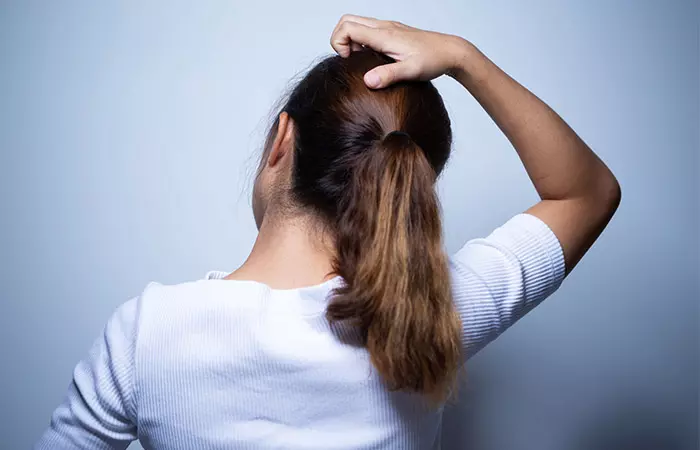
According to Dr. Ross, “Your product choices may be one of the reasons behind an itchy scalp. If you don’t hydrate your scalp, several hair products will dry it out and cause acute irritation. It will persist until you cleanse your hair and scalp with a hypoallergenic product.”
Dr. Onay adds, “Itchy scalps are often the result of scalp inflammation. Inflammation of the scalp can be caused by different factors, such as trauma to the scalp, excessively hot showers, using nails while scratching the scalp, and the transition period between anagen, catagen, and telogen phases of hair growth.”
According to the American Academy of Dermatology Association, the top ten causes of itchy scalp include the following (27):
- Dandruff
- Allergic reactions to hair care products such as hair dyes
- Head lice
- Hives
- Scabies
- Scalp ringworm
- Scalp psoriasis
- Atopic dermatitisi A long-term allergic, inflammatory skin condition that causes itchy, red, swollen, and cracked skin.
- Nerve problem
- Skin cancer
According to the World Health Organization (WHO), scabies affects more than 200 million people at any time and more than 400 million people every year globally. Scabies is more common in resource-poor tropical settings and affects mostly 5% to 50% of children in these areas.
Anxiety, diabetes, shingles, stress, hormonal changes, and certain medical conditions can also lead to an itchy scalp (28). Dr. May adds, “One reason your scalp is itching is that it may have an allergic reaction to your shampoo or conditioner, especially if you miss rinsing your hair well. Leaving these hair care products not properly rinsed can result in irritation, making your scalp very itchy. So, every time you wash your hair, rinse thoroughly.”
He adds, “Another reason for an itchy scalp is a reaction to a specific ingredient in your shampoo. For example, sulfates can be good or bad for a person’s hair. Sulfates are effective cleaning agents. However, they also strip hair of essential oils, making your hair parched. They can also irritate the scalp of people with sensitive skin, resulting in redness and itching. When picking a shampoo, read the ingredients and choose a gentle formula that will be perfect for your sensitive scalp.”
Consult a doctor if the itchiness worsens or lasts more than a week. Any swelling, sores or pain associated with an itchy scalp need medical attention.
We have discussed the causes of an itchy scalp and its home remedies. But wouldn’t you prefer to avoid it in the first place? Keep reading to find out how.
How To Prevent An Itchy Scalp
Addressing the causes of an itchy scalp can help manage or prevent it.
- Treat dandruff, ringworm, lice infestation, and other scalp infections.
- Moisturize the scalp so it is not dry and flaky. Use hydrating shampoos and massage your scalp with oils (jojoba, argan, olive, or coconut) for restoring moisture.
- Avoid aggressive scratching or massaging of the scalp. Avoid hot showers too.
- Limit the use of styling tools and hair care products, including alcohol-based products. Dyes, fragrances, and chemicals can also aggravate the scalp. Do a patch test to check for allergic reactions.
- Protect yourself from skin cancer by covering your head with a cap while heading out. Use products with SPF.
- Maintain hygiene by washing hair regularly and changing bed covers and pillowcases once a week. Avoid sharing combs, hairbrushes, hats, helmets, and towels (also helps stop the spread of lice infestation).
- Have a dedicated hair care routine. Use products right for your hair and scalp.
- Lead a life free of stress and anxiety. Stay hydrated, and follow a balanced diet rich in iron, zinc, and proteins. Get 7-8 hours of sleep every night.
- Exercise regularly and practice yoga and meditation.
Do Home Remedies Have Any Risks Or Side Effects?
These home remedies for itchy scalp are generally safe unless you are allergic to any of the ingredients. If the reason for scratching is seborrheic dermatitis or an allergic reaction, it can surely worsen the condition. Talk to your doctor if you experience any allergies.
Infographic: Best Oils To Manage An Itchy Scalp
Dandruff, dry scalp, and allergic reactions are the most common causes of an itchy scalp. So, the main treatments also include adding more moisture to the scalp and treating dandruff. Though you can follow the methods discussed in the article for a proper scalp care, we have created a round-up of the best oils to relieve an itchy scalp faster. Check out the infographic below to learn more about them and how to use these oils to treat an itchy scalp.
Some thing wrong with infographic shortcode. please verify shortcode syntax
An itchy scalp has a wide range of causes, from dandruff, stress, and lice to hives, scabies, scalp ringworm, and atopic dermatitis. Apart from over-the-counter treatments, using home remedies for itchy scalp relief can be helpful due to their anti-inflammatory, antifungal, antibacterial, and emollienti A substance or agent that helps moisturize the skin by forming a protective layer or barrier on the skin and trapping moisture. properties. However, an itchy scalp can even be a sign of an underlying health condition as serious as diabetes and skin cancer. So, consult a doctor if itching persists despite these treatments. Also, do not forget to do a patch test before using home remedies to avoid the possible risk of an allergic reaction, which may exacerbate the condition.
Frequently Asked Questions
Is coffee good for an itchy scalp?
Grounded coffee can be used to scrub the scalp to clean and exfoliate it. This helps rid the scalp of dirt, sebum, or product buildup and reduces flakiness and itching.
Is turmeric good for an itchy scalp?
Yes. Turmeric has antifungal, antibacterial, and anti-inflammatory properties, which may help relieve itchy scalp (29).
What autoimmune disease causes an itchy scalp?
Scalp psoriasis is an autoimmune disease that causes an itchy scalp. It leads to the formation of stubborn, raised, discolored, itchy scales on the scalp that can be extremely irritating.
How do you detox your scalp?
You can detox your scalp by performing a relaxing scalp oil massage twice a week to provide it with moisturizing nourishment. And use a scalp scrub or exfoliating rinse once or twice a week to clear away dirt, dead cells, excess sebum, and product buildup. Also, use a clarifying shampoo once a month for a powerful and thorough cleanse.
What vitamins help an itchy scalp?
The deficiency of vitamins B2, B3, B6, B7, or D is usually associated with an itchy scalp. Supplementing these vitamins can help improve the condition of a dry and itchy scalp.
What are some scalp-friendly foods that can be added to one’s diet to prevent itchiness?
Consuming citrus fruits, yogurt, Brazilian nuts, and foods rich in protein and omega-3 fatty acids can keep your scalp nourished and prevent itchiness.
Can over-washing or under-washing one’s hair contribute to an itchy scalp?
Absolutely. Overwashing can strip natural oils from your hair and scalp, dehydrating it and making your scalp itchy. Under-washing can lead to product buildup and clogging of your scalp pores, not allowing it to breathe, thus leading to itchiness.
Illustration: Effective Home Remedies For Itchy Scalp Treatment
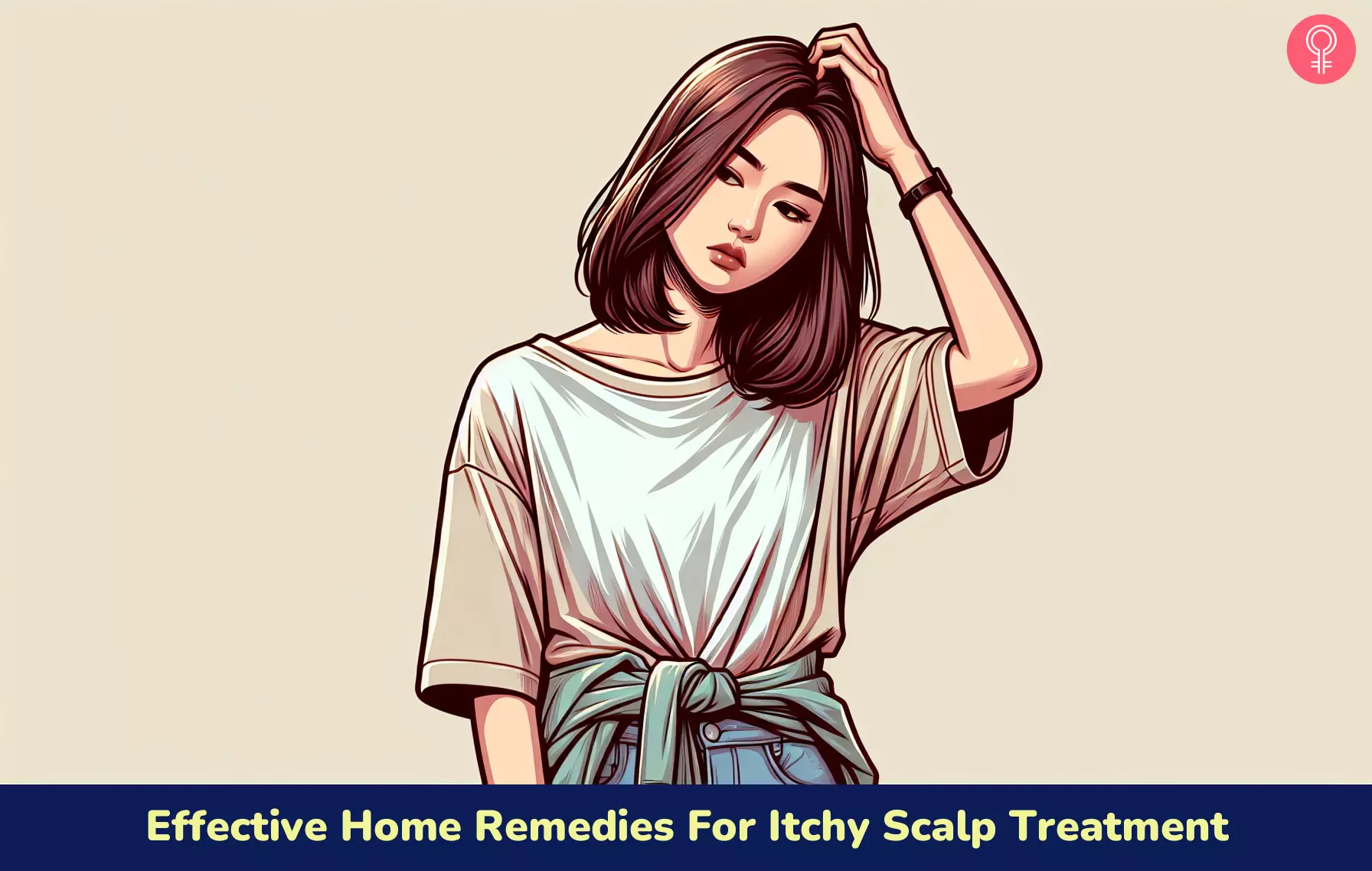
Image: Dall·E/StyleCraze Design Team
Personal Experience: Sources
StyleCraze's articles are interwoven with authentic personal narratives that provide depth and resonance to our content. Below are the sources of the personal accounts referenced in this article.
i. New Ideas For Itchy Scalp;https://science-yhairblog.blogspot.com/2013/04/new-ideas-for-itchy-scalp.html
References
Articles on StyleCraze are backed by verified information from peer-reviewed and academic research papers, reputed organizations, research institutions, and medical associations to ensure accuracy and relevance. Read our editorial policy to learn more.
- Antifungal Activity of Apple Cider Vinegar on Candida Species Involved in Denture Stomatitis
https://pubmed.ncbi.nlm.nih.gov/25219289/ - Antimicrobial activity of apple cider vinegar against Escherichia coli, Staphylococcus aureus and Candida albicans; downregulating cytokine and microbial protein expression
- Novel antibacterial and emollient effects of coconut and virgin olive oils in adult atopic dermatitis
https://pubmed.ncbi.nlm.nih.gov/19134433/ - Clinical trial showing superiority of a coconut and anise spray over permethrin 0.43% lotion for head louse infestation, ISRCTN96469780
https://pubmed.ncbi.nlm.nih.gov/19343362/ - Activity of tea tree oil and nerolidol alone or in combination against Pediculus capitis (head lice) and its eggs
https://pmc.ncbi.nlm.nih.gov/articles/PMC3480584/ - Melaleuca alternifolia (Tea Tree) Oil: a Review of Antimicrobial and Other Medicinal Properties
https://pmc.ncbi.nlm.nih.gov/articles/PMC1360273/ - Antibacterial activity of baking soda
https://pubmed.ncbi.nlm.nih.gov/12017929/ - Antifungal activity of sodium bicarbonate against fungal agents causing superficial infections
https://pubmed.ncbi.nlm.nih.gov/22991095/ - Aloe Vera: A Short Review
https://pmc.ncbi.nlm.nih.gov/articles/PMC2763764/ - Phytochemical, antimicrobial, and antioxidant activities of different citrus juice concentrates
https://pmc.ncbi.nlm.nih.gov/articles/PMC4708628/ - Antibacterial and antioxidant activities of Mentha piperita L.
https://www.sciencedirect.com/science/article/pii/S1878535211000232 - North American Virginian Witch Hazel (Hamamelis virginiana): Based Scalp Care and Protection for Sensitive Scalp, Red Scalp, and Scalp Burn-Out
https://pubmed.ncbi.nlm.nih.gov/25210333/ - Molecular mechanisms of inflammation. Anti-inflammatory benefits of virgin olive oil and the phenolic compound oleocanthal
https://pubmed.ncbi.nlm.nih.gov/21443487/ - Oleuropein in Olive and its Pharmacological Effects
https://pmc.ncbi.nlm.nih.gov/articles/PMC3002804/ - Hair Cosmetics: An Overview
https://pmc.ncbi.nlm.nih.gov/articles/PMC4387693/ - The antimicrobial activity of garlic and onion extracts
https://pubmed.ncbi.nlm.nih.gov/6669596/ - Comparison of antioxidant activities of onion and garlic extracts by inhibition of lipid peroxidation and radical scavenging activity
https://www.sciencedirect.com/science/article/abs/pii/S0308814602004764 - An ex vivo, assessor blind, randomised, parallel group, comparative efficacy trial of the ovicidal activity of three pediculicides after a single application – melaleuca oil and lavender oil, eucalyptus oil and lemon tea tree oil, and a “suffocation” pediculicide
https://bmcdermatol.biomedcentral.com/articles/10.1186/1471-5945-11-14 - Immune-modifying and antimicrobial effects of Eucalyptus oil and simple inhalation devices
https://pubmed.ncbi.nlm.nih.gov/20359267/ - Anti-dandruff Hair Tonic Containing Lemongrass (Cymbopogon flexuosus) Oil
https://pubmed.ncbi.nlm.nih.gov/26566122/ - The antimicrobial activity of Azadirachta indica, Mimusops elengi, Tinospora cardifolia, Ocimum sanctum and 2% chlorhexidine gluconate on common endodontic pathogens: An in vitro study
https://pmc.ncbi.nlm.nih.gov/articles/PMC4054046/ - A Comprehensive Review of Plant-Based Cosmetic Oils (Virgin Coconut Oil, Olive Oil, Argan Oil, and Jojoba Oil): Chemical and Biological Properties and Their Cosmeceutical Applications
https://pmc.ncbi.nlm.nih.gov/articles/PMC11541506/ - Antimicrobial potential of Ricinus communis leaf extracts in different solvents against pathogenic bacterial and fungal strains
https://pmc.ncbi.nlm.nih.gov/articles/PMC3621469/ - Scalp Stratum Corneum Histamine Levels: Novel Sampling Method Reveals Association with Itch Resolution in Dandruff/Seborrhoeic Dermatitis Treatment
https://www.medicaljournals.se/acta/content/html/10.2340/00015555-1073 - Salicylic Acid
https://pubchem.ncbi.nlm.nih.gov/compound/salicylic_acid - Dandruff: The Most Commercially Exploited Skin Disease
https://pmc.ncbi.nlm.nih.gov/articles/PMC2887514/ - 10 reasons your scalp itches and how to get relief
https://www.aad.org/public/everyday-care/itchy-skin/itch-relief/relieve-scalp-itch - The Itchy scalp – scratching for an explanation
https://pmc.ncbi.nlm.nih.gov/articles/PMC3233984/ - Turmeric and Its Major Compound Curcumin on Health: Bioactive Effects and Safety Profiles for Food, Pharmaceutical, Biotechnological and Medicinal Applications
https://pmc.ncbi.nlm.nih.gov/articles/PMC7522354/
Read full bio of Dr. Shruti Chavan
- Dr. Kuddusi Onay is a medical esthetic surgeon based in Istanbul and London, specializing in hair transplant surgeries. He has over five years of experience and is considered one of the leading surgeons in the field of hair transplantation. He is an alumnus of the Faculty of Medicine - Mustafa Kemal University, Turkey
 Dr. Kuddusi Onay is a medical esthetic surgeon based in Istanbul and London, specializing in hair transplant surgeries. He has over five years of experience and is considered one of the leading surgeons in the field of hair transplantation. He is an alumnus of the Faculty of Medicine - Mustafa Kemal University, Turkey
Dr. Kuddusi Onay is a medical esthetic surgeon based in Istanbul and London, specializing in hair transplant surgeries. He has over five years of experience and is considered one of the leading surgeons in the field of hair transplantation. He is an alumnus of the Faculty of Medicine - Mustafa Kemal University, Turkey - Dr. Nina Ross is a board-certified trichologist and master cosmetologist with over 16 years of experience. She is also the co-founder of Nina Ross Hair Therapy. She helps clients dealing with hair loss/thinning, traction alopecia, excess DHT/hormonal hair loss, psoriasis, scalp Inflammation, excessive dandruff, dermatitis, and dry, and brittle strands.
 Dr. Nina Ross is a board-certified trichologist and master cosmetologist with over 16 years of experience. She is also the co-founder of Nina Ross Hair Therapy. She helps clients dealing with hair loss/thinning, traction alopecia, excess DHT/hormonal hair loss, psoriasis, scalp Inflammation, excessive dandruff, dermatitis, and dry, and brittle strands.
Dr. Nina Ross is a board-certified trichologist and master cosmetologist with over 16 years of experience. She is also the co-founder of Nina Ross Hair Therapy. She helps clients dealing with hair loss/thinning, traction alopecia, excess DHT/hormonal hair loss, psoriasis, scalp Inflammation, excessive dandruff, dermatitis, and dry, and brittle strands. - Dr. Michael May, MD, is the Medical Director and Principal Surgeon of the Wimpole Clinic in Harley Street, London. He has 25 years of experience in the field of hair transplant surgery and has completed over 10,000 hair transplant procedures. He is the current president of the European Society of Hair Restoration Surgery, a registered member of The Trichological Society, and a Diplomat of Hair Restoration Surgery (ABHRS).
 Dr. Michael May, MD, is the Medical Director and Principal Surgeon of the Wimpole Clinic in Harley Street, London. He has 25 years of experience in the field of hair transplant surgery and has completed over 10,000 hair transplant procedures. He is the current president of the European Society of Hair Restoration Surgery, a registered member of The Trichological Society, and a Diplomat of Hair Restoration Surgery (ABHRS).
Dr. Michael May, MD, is the Medical Director and Principal Surgeon of the Wimpole Clinic in Harley Street, London. He has 25 years of experience in the field of hair transplant surgery and has completed over 10,000 hair transplant procedures. He is the current president of the European Society of Hair Restoration Surgery, a registered member of The Trichological Society, and a Diplomat of Hair Restoration Surgery (ABHRS).
Read full bio of Annie Jangam
Read full bio of Ramona Sinha
Read full bio of Monomita Chakraborty





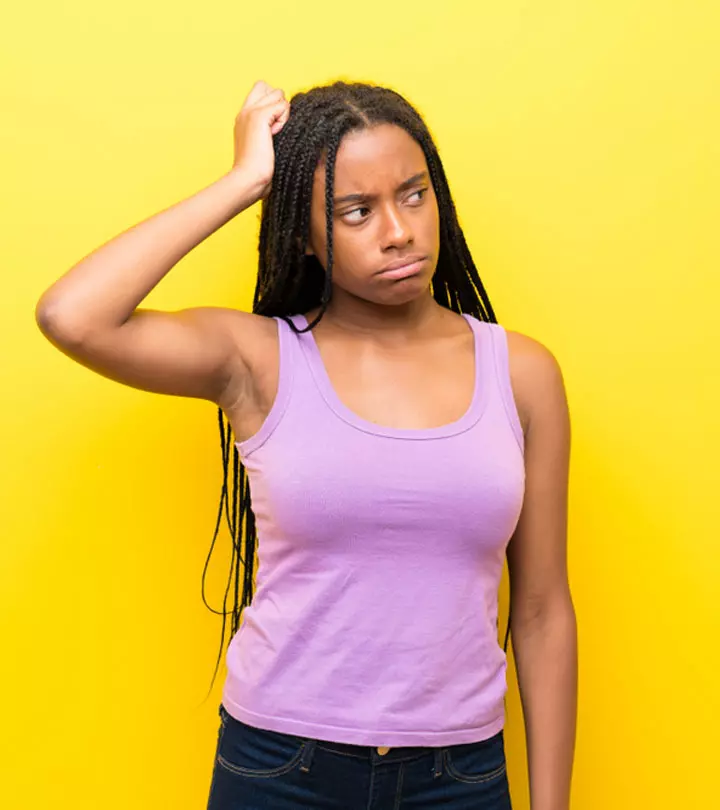
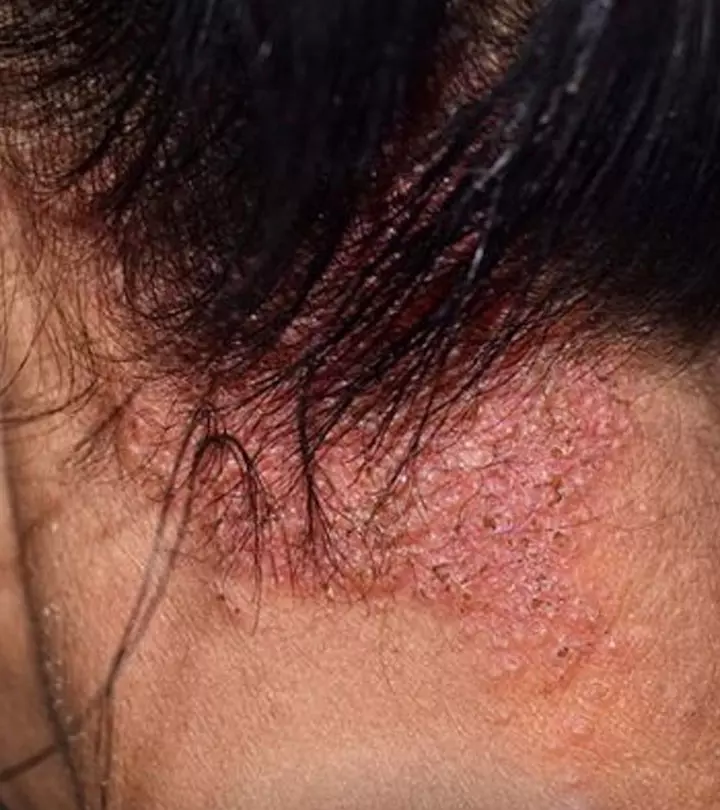
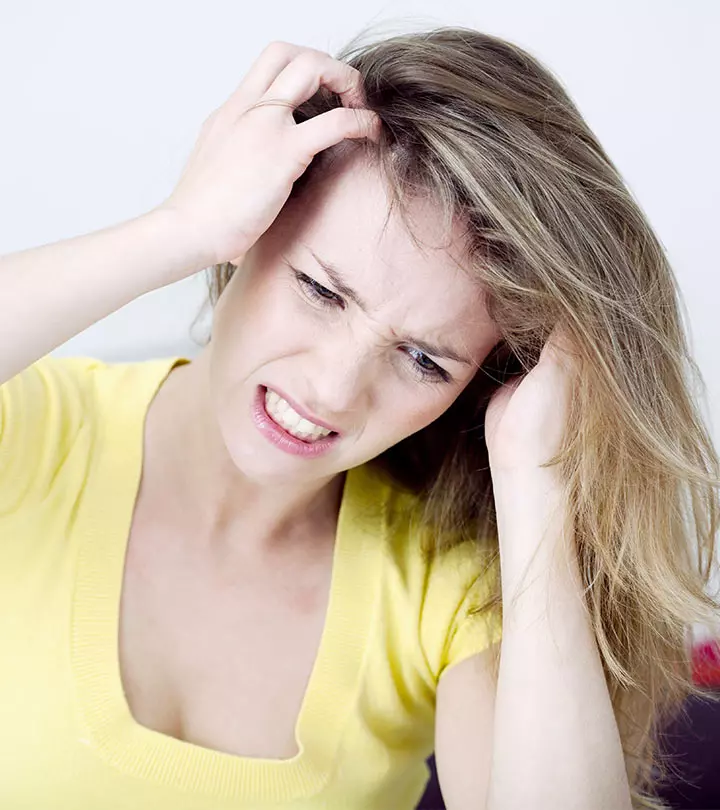
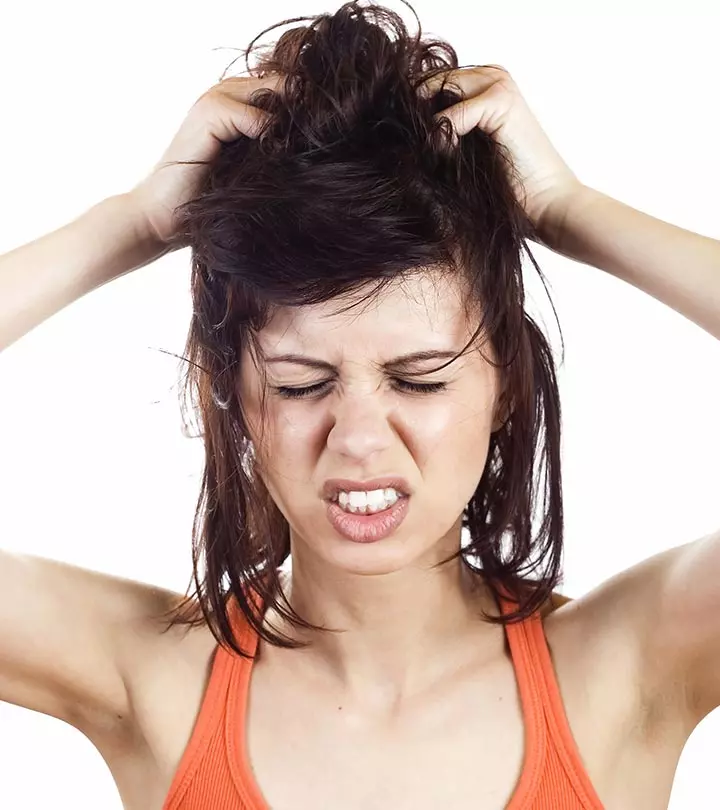
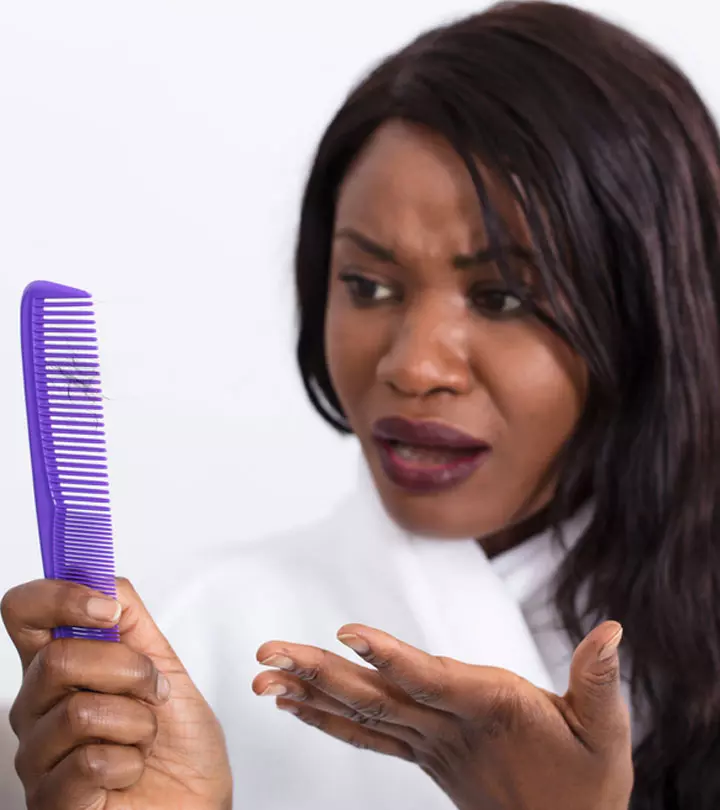
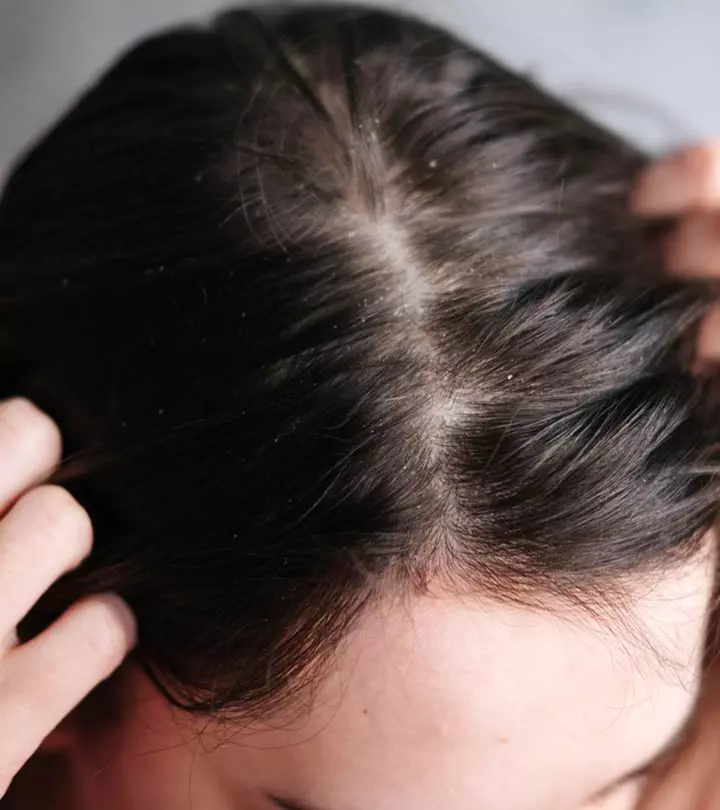
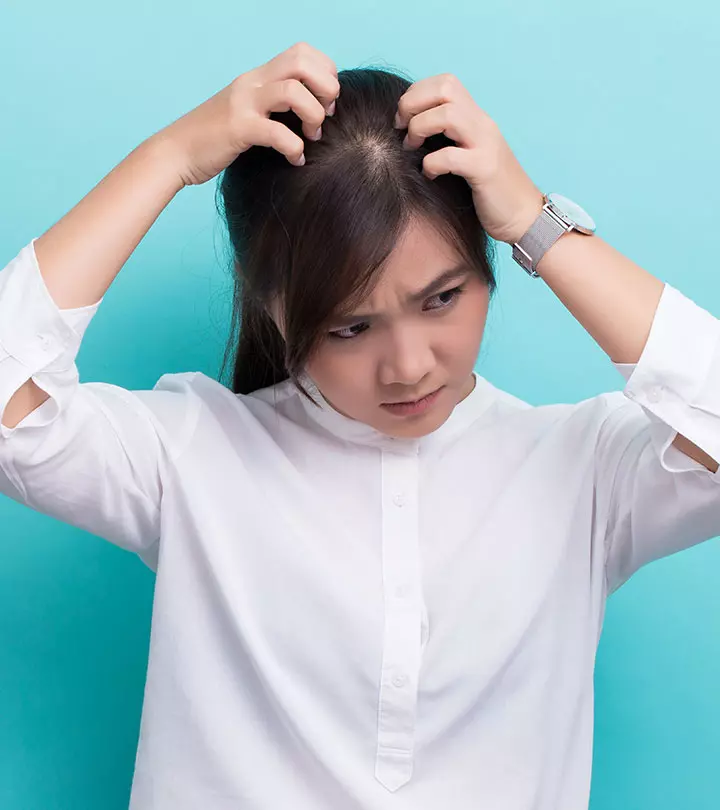


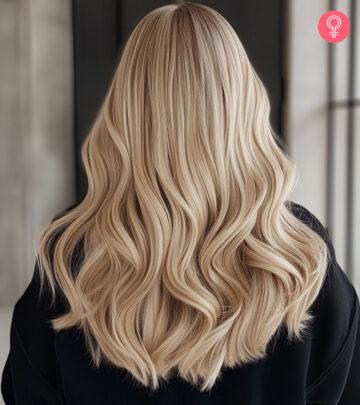


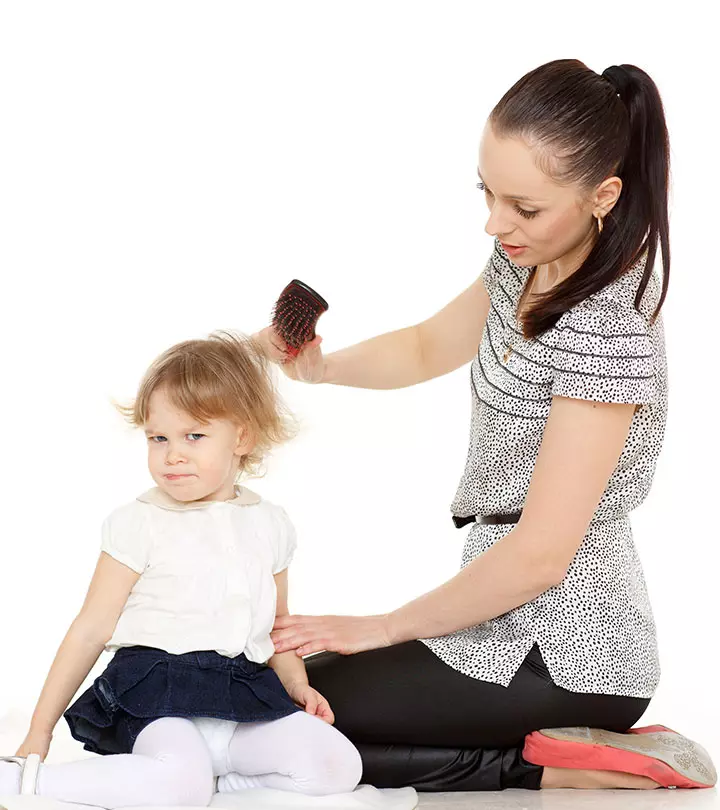

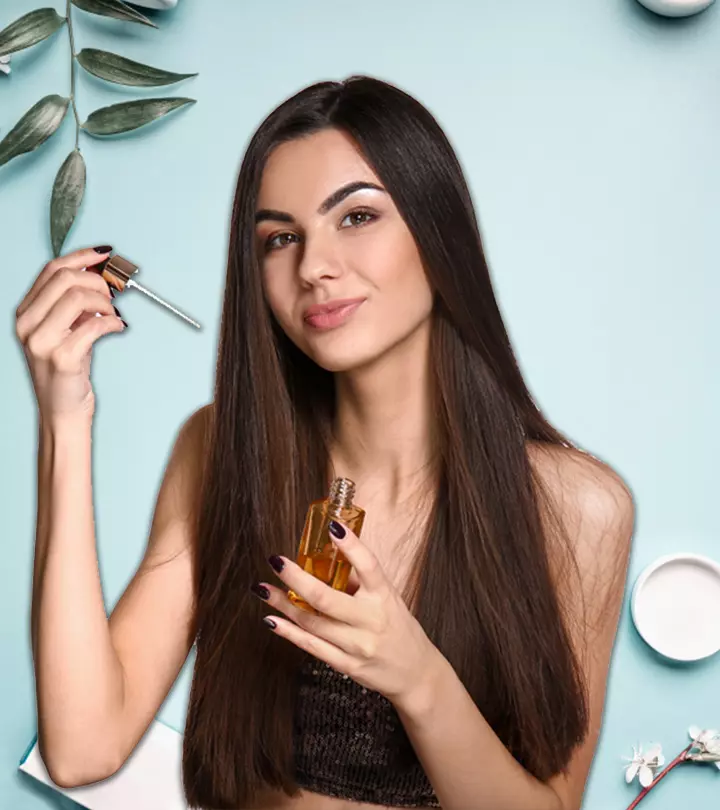




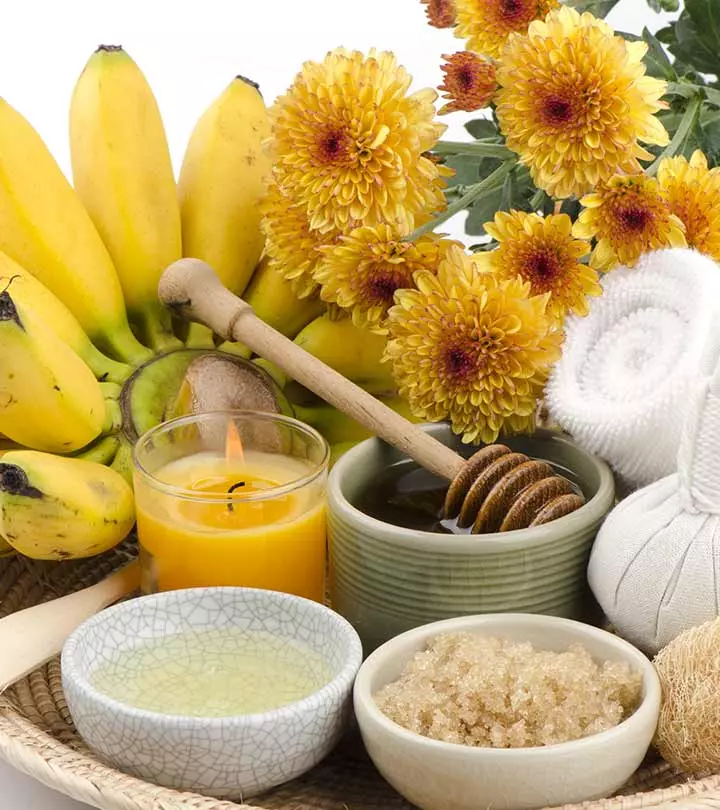
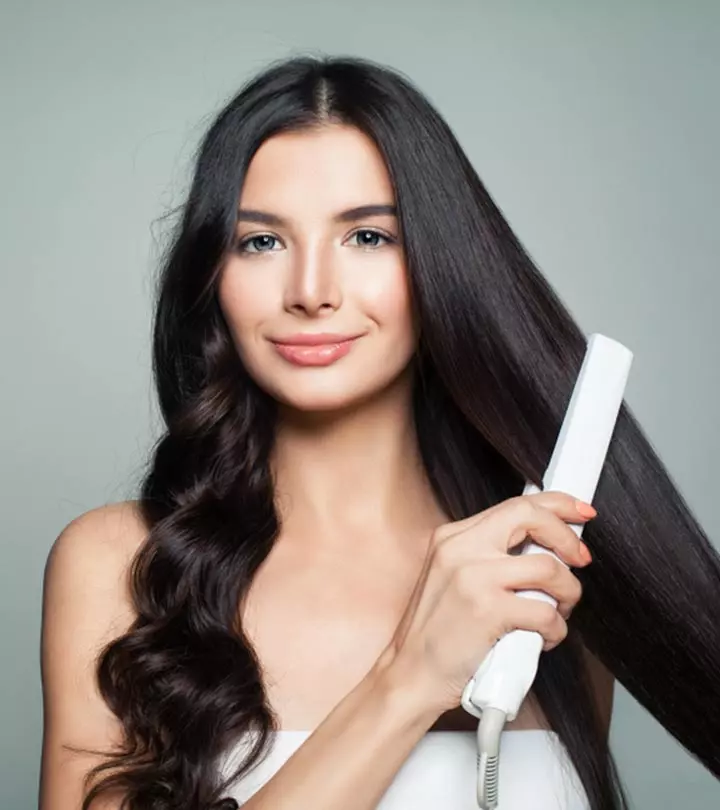

Community Experiences
Join the conversation and become a part of our empowering community! Share your stories, experiences, and insights to connect with other beauty, lifestyle, and health enthusiasts.